Late last week I had the pleasure of conducting my 50th Ph.D. viva as an external examiner. The first Ph.D. viva as external examiner was in 2004 at the University of Durham. Over the years most have been at universities in the UK, but I have also had the pleasure of conducting viva in Ireland, the Netherlands, Nepal, Australia, Belgium, Finland, Denmark and New Zealand. Technically three of these were not a traditional Ph.D. viva, as it included one Doctorate in Professional Practice (at The Robert Gordon University in Aberdeen), a D. Phil. at the University of Oxford and acting as pre-examiner for a Ph.D. at a university on Finland. In addition I have also acted six times as an internal examiner at the University of Aberdeen (n=3) and Bournemouth University (n=3). Over the years some of the experiences related to examining and supervision Ph.D. theses have resulted in papers and book chapters [1-5].

Prof. Edwin van Teijlingen
Centre for Midwifery, Maternal & Perinatal Health
References:
- van Teijlingen E (2007) PhD theses: the pros and cons (letter), Times Higher Education Suppl. Issue 1808 (August 24th): 15.
- Regmi, P., Poobalan, A., Simkhada, P., van Teijlingen, E. (2021) PhD supervision in Public Health, Health Prospect: Journal of Public Health 20(1):1-4.
- Wasti, S.P. Regmi, P.R., Simkhada, P., van Teijlingen, E., Hundley, V. (2022) Writing a PhD Proposal, In: Wasti, S.P., et al. (Eds.) Academic Writing and Publishing in Health & Social Sciences, Kathmandu, Nepal: Himal Books: 176-183.
- Hundley, V., Simkhada, P., van Teijlingen, E. (2022) Converting your Master’s or Doctoral Thesis into an Academic Paper for Publication, In: Wasti, S.P., et al. (Eds.) Academic Writing and Publishing in Health & Social Sciences, Kathmandu, Nepal: Himal Books: 184-189.
- van Teijlingen, E., Simkhada, B., Regmi, P., Simkhada, P., Hundley, V., Poudel, K.C. (2022) Reflections on variations in PhD viva regulations: “And the options are….”, Journal of Education & Research 12(2): 61-74.
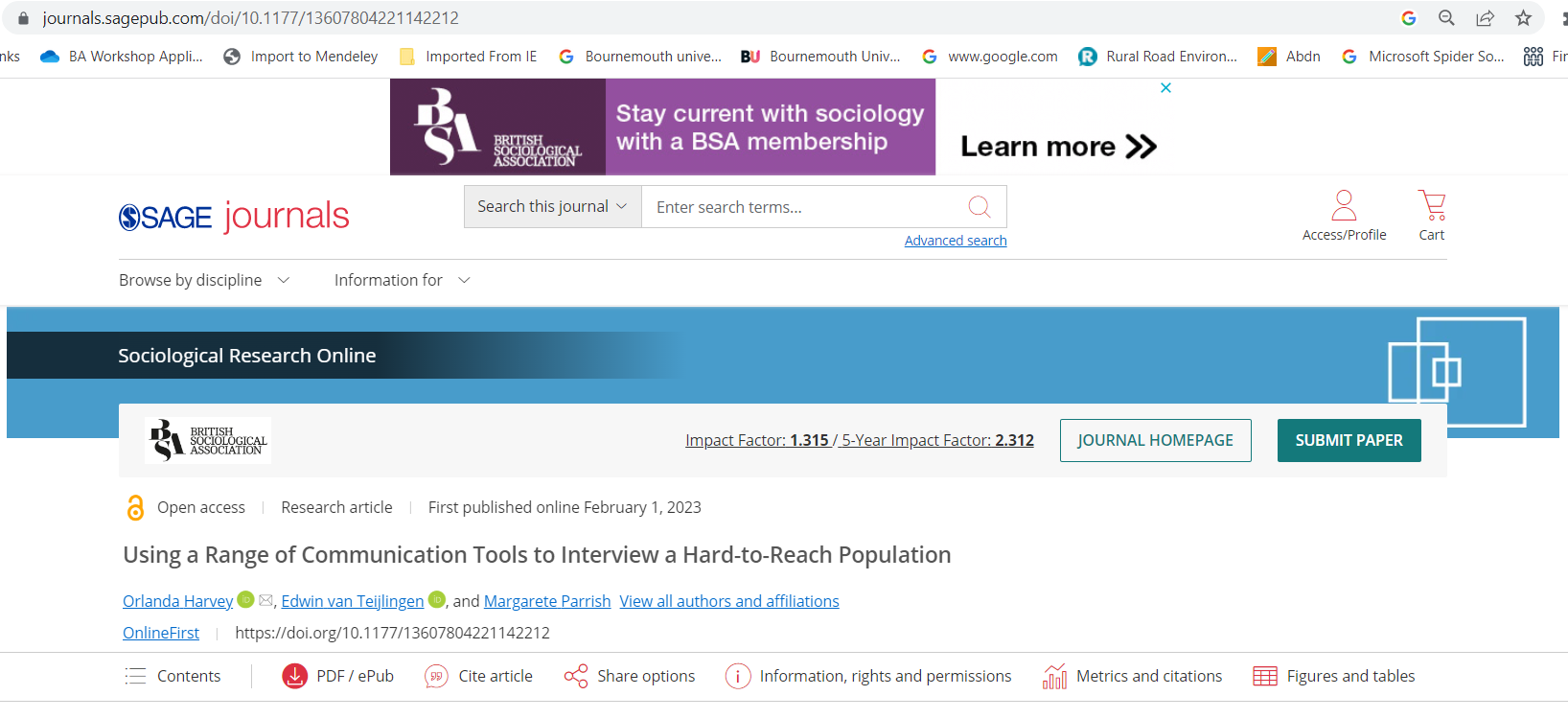

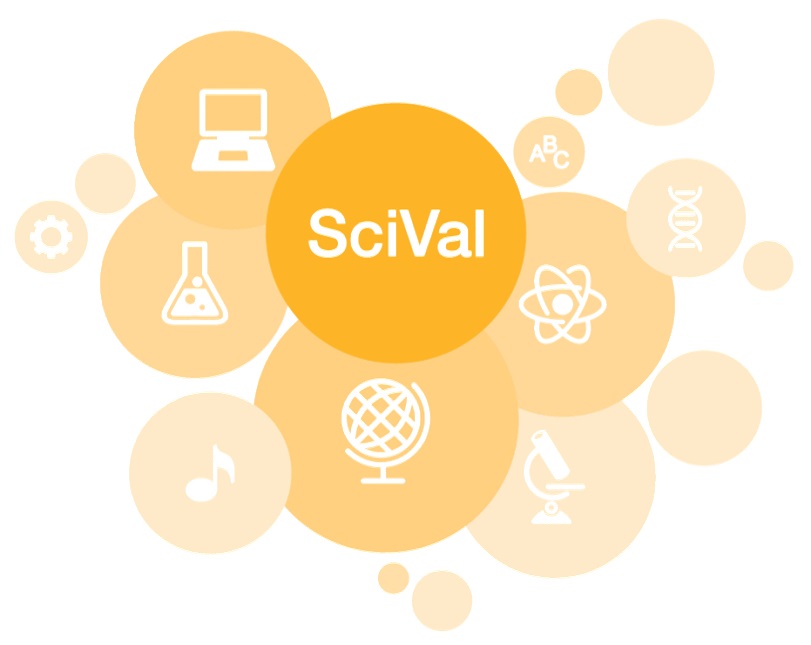

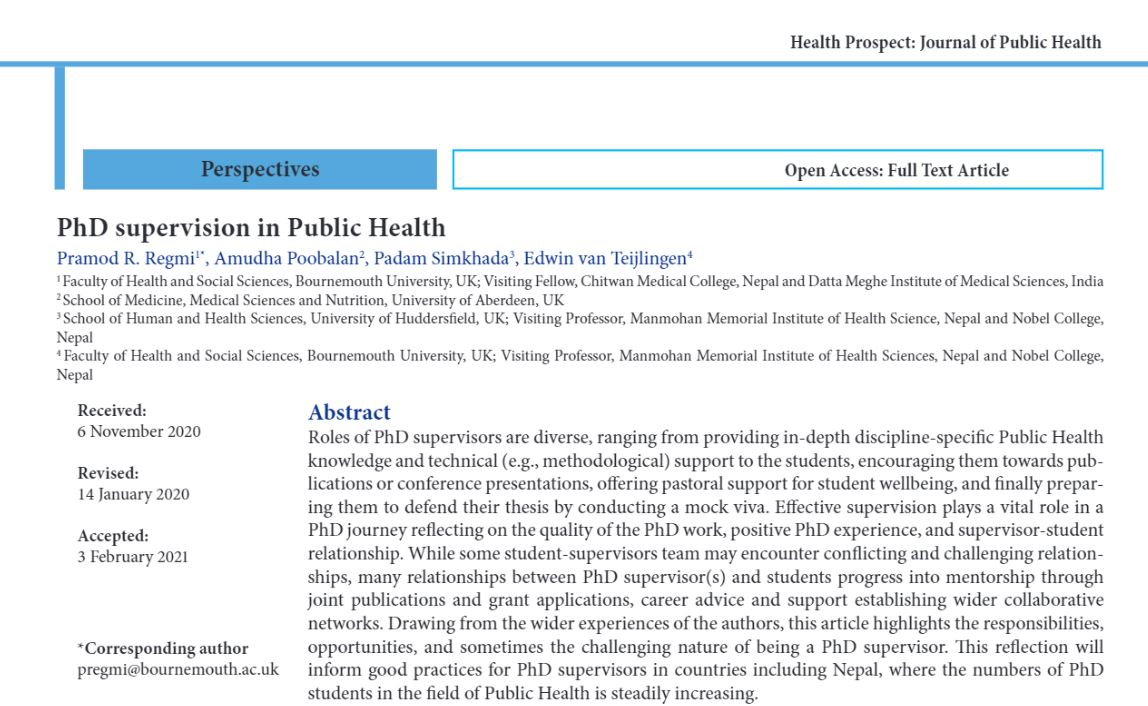
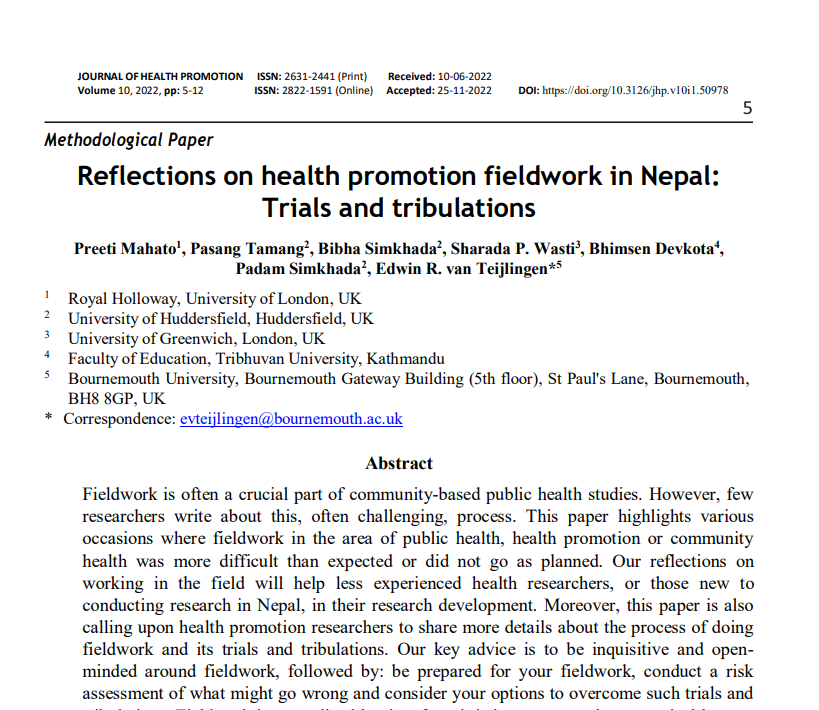
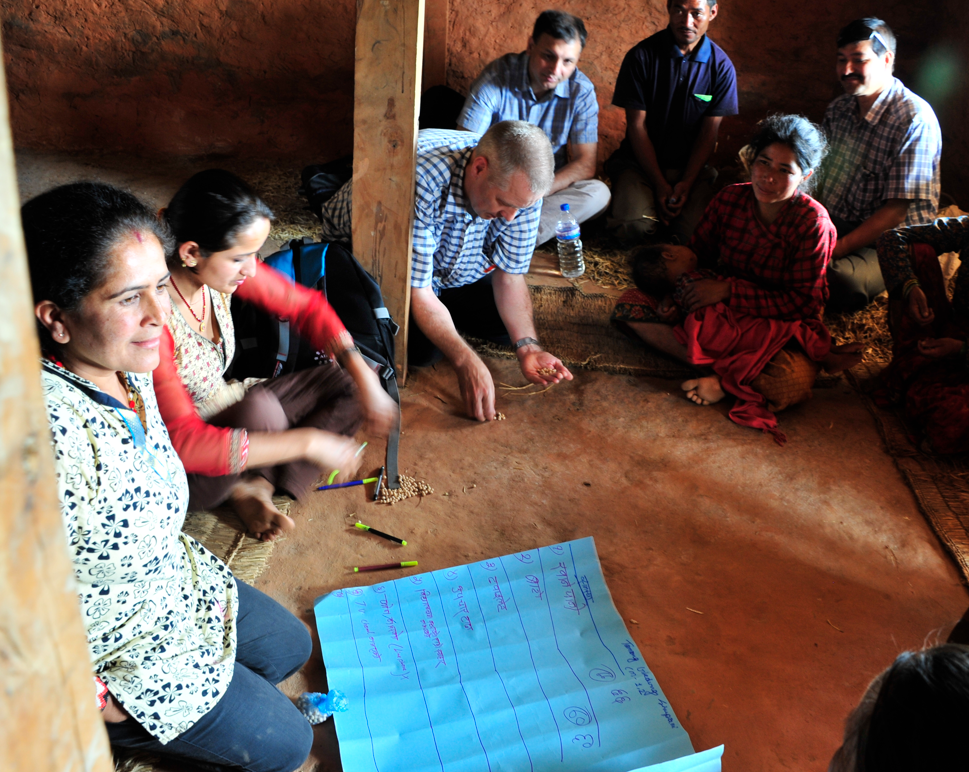

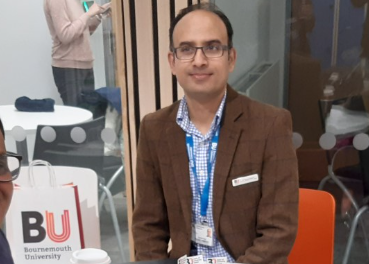
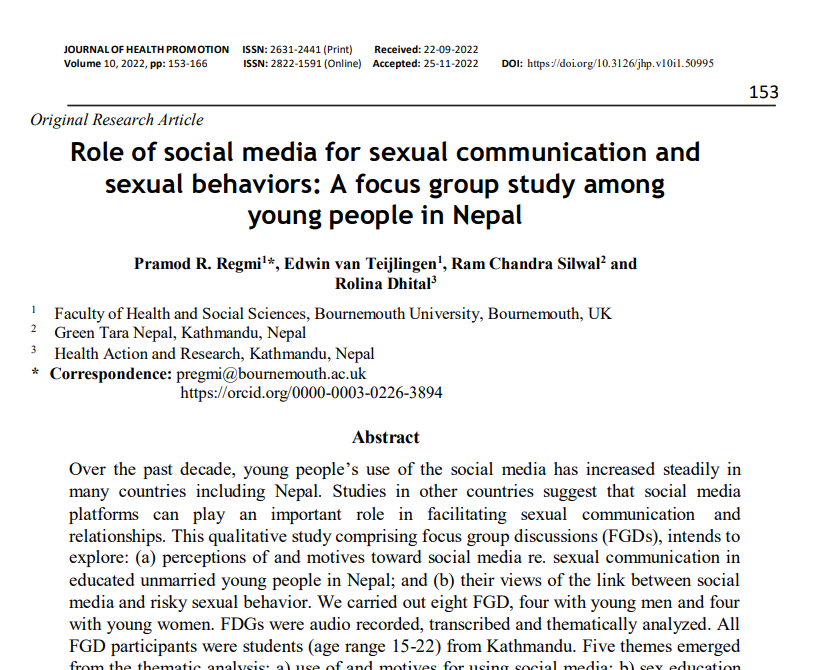
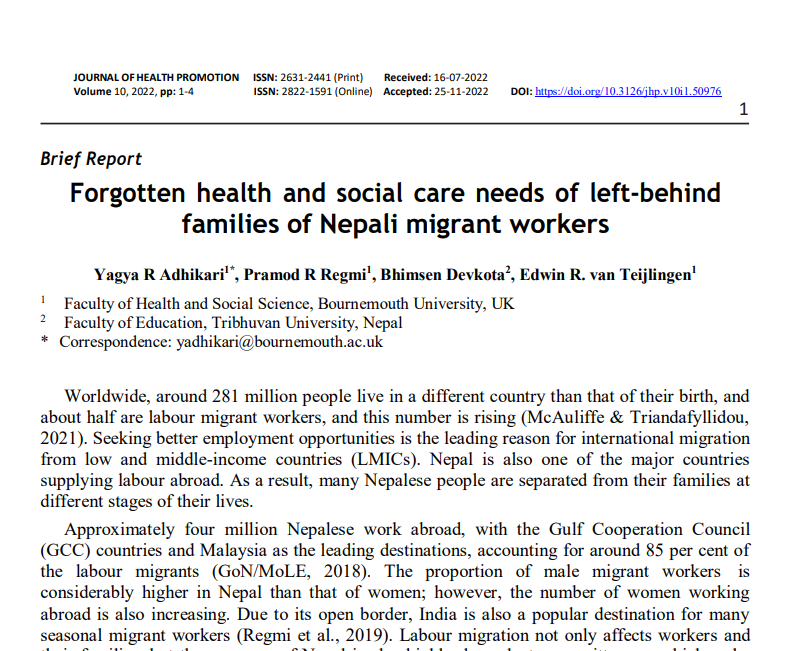


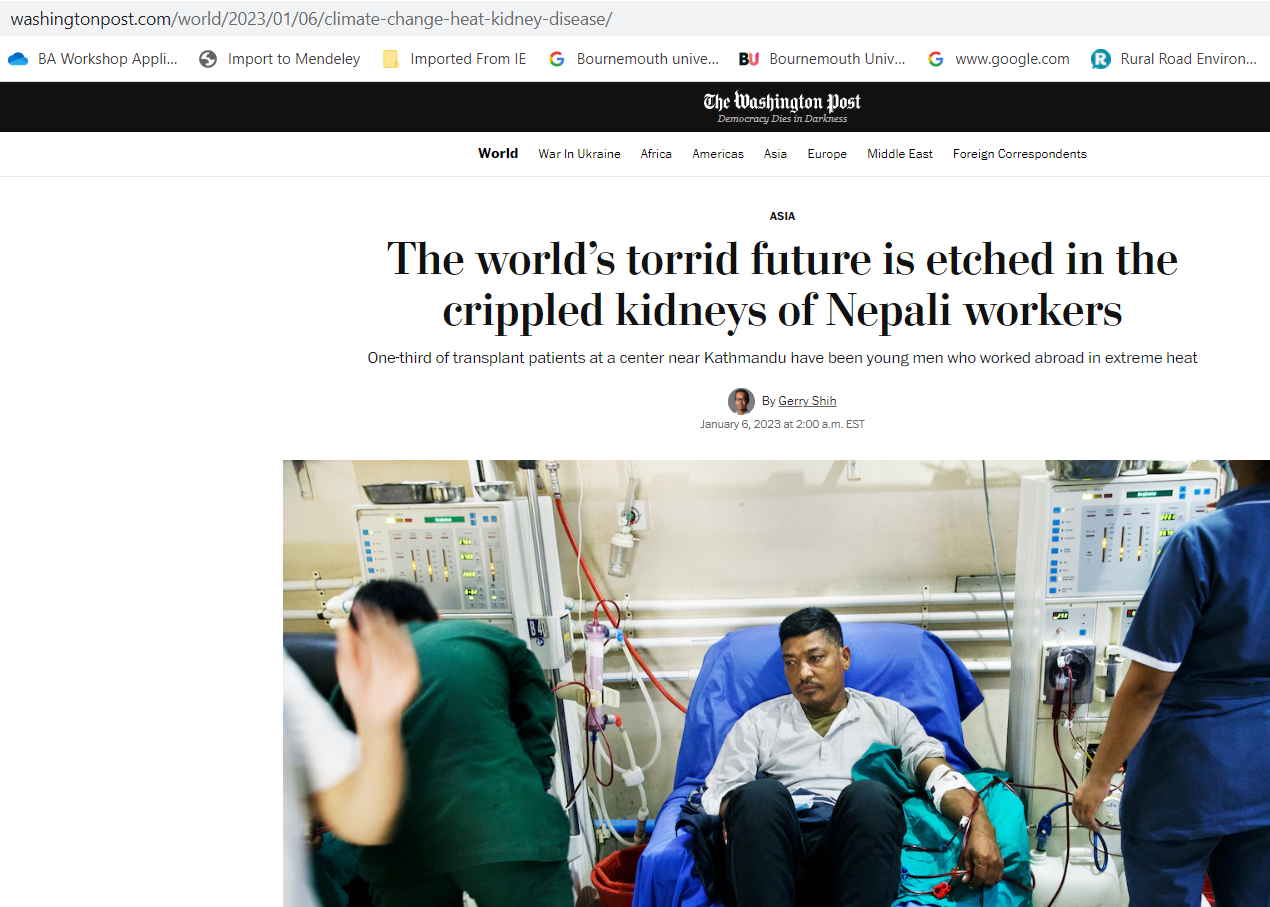

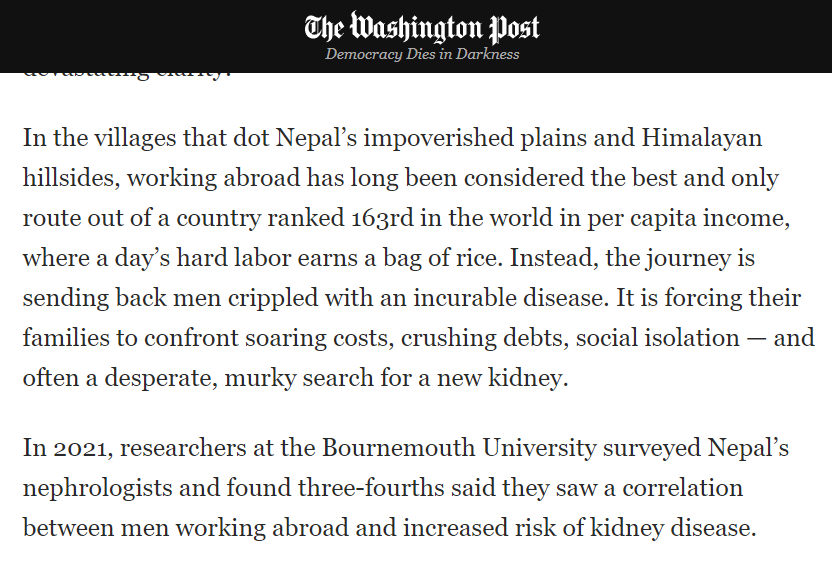


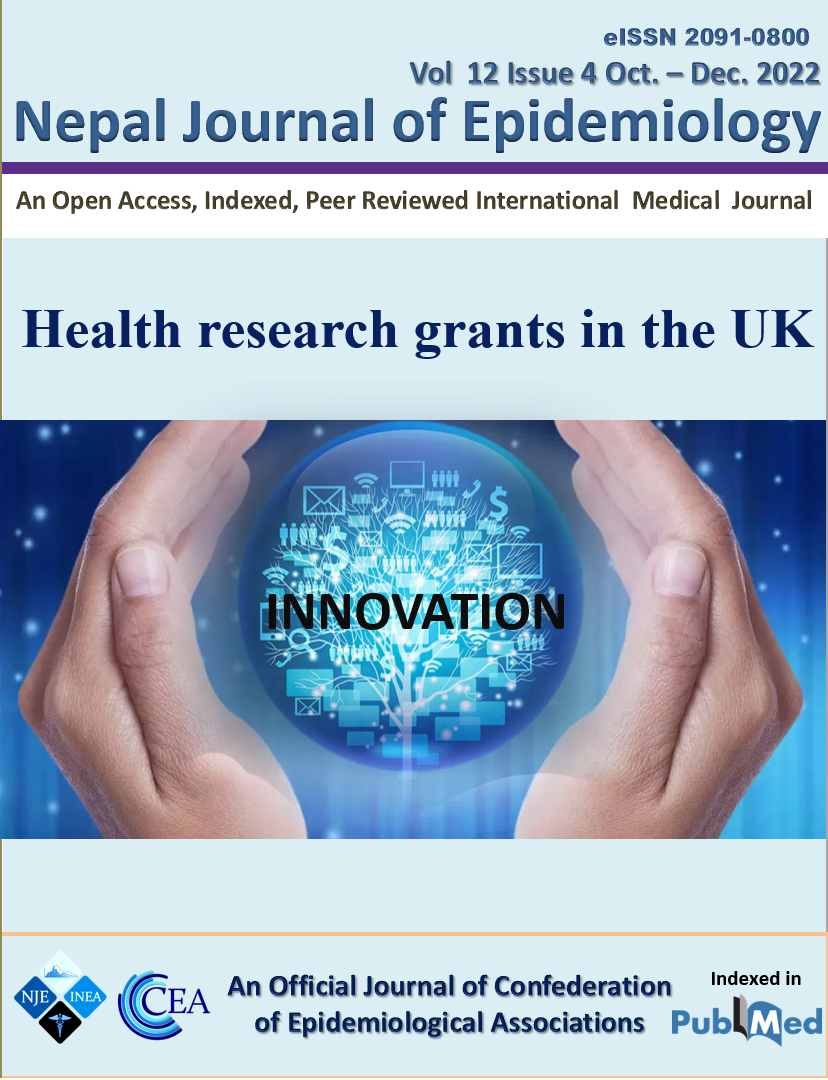
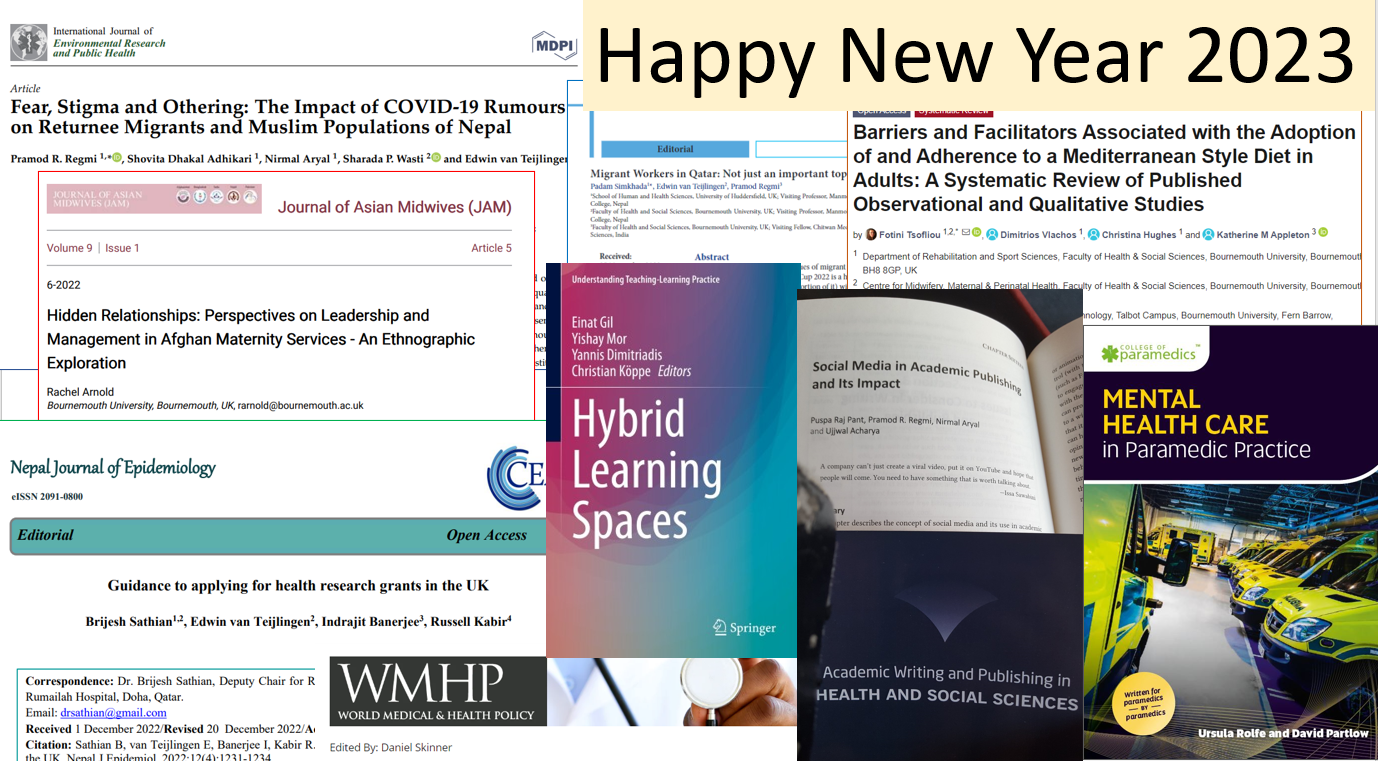
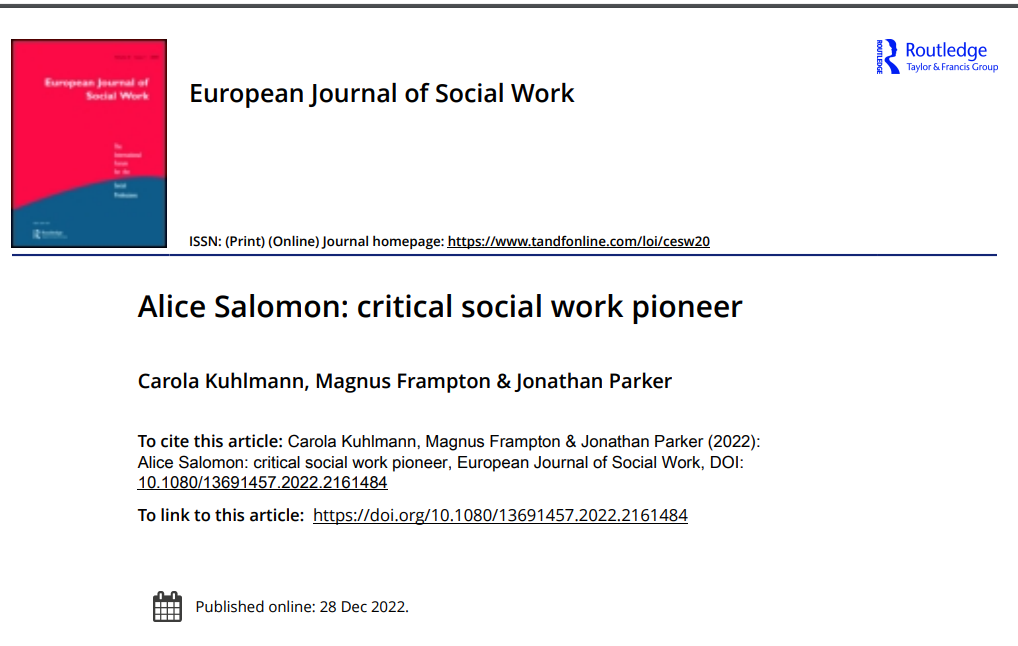
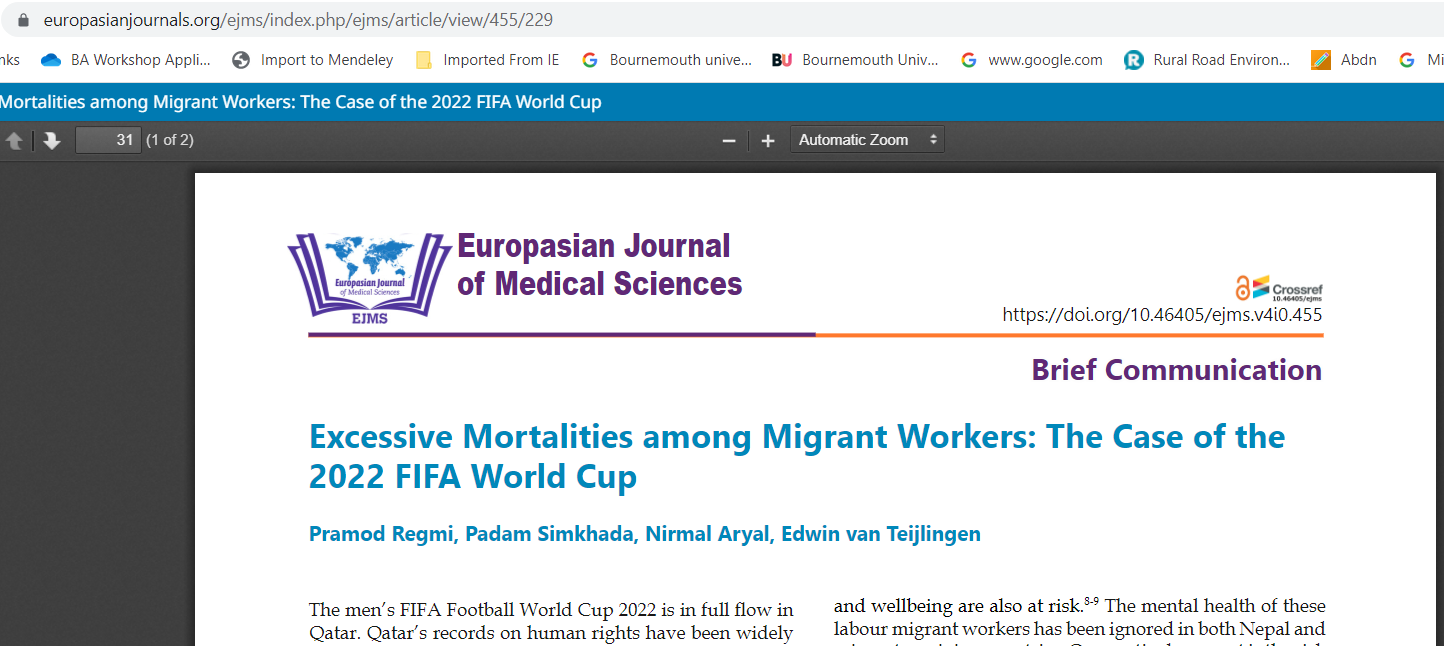

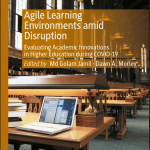

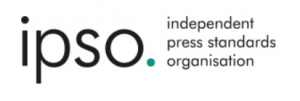
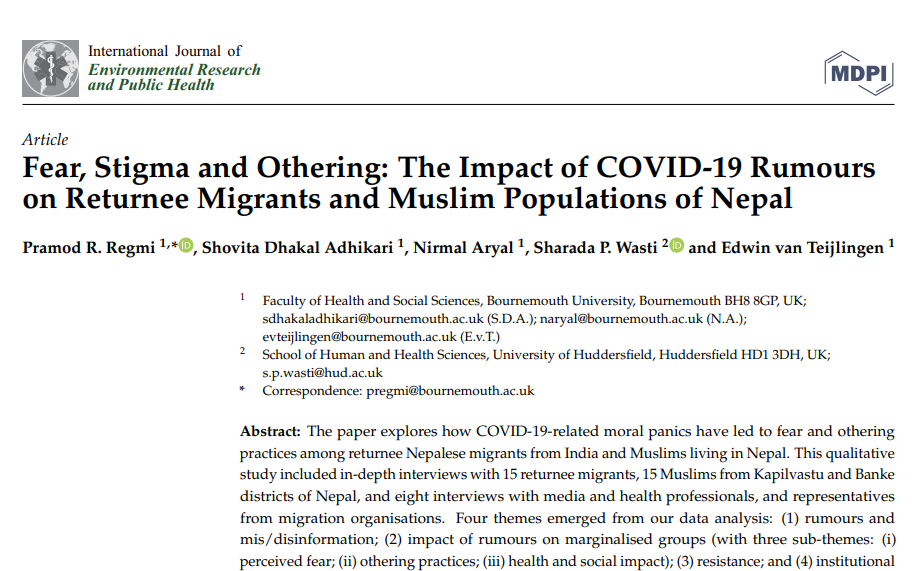











 Conversation article: London Marathon – how visually impaired people run
Conversation article: London Marathon – how visually impaired people run Horizon Europe News – December 2023
Horizon Europe News – December 2023